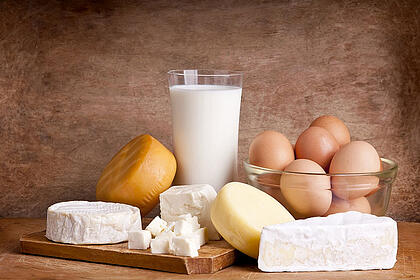
Part of eating a healthy diet is eating a proper amount of dairy products, whether that is from cheese or milk, it is detrimental that in addition to meat, fruits, veggies, and nuts, that you have an adequate amount of dairy in your regular diet.
These food groups are especially important in patients that suffer from chronic obstructive pulmonary disease (COPD), because food is the bodies energy source.
COPD patients have an increased difficulty of breathing which requires more energy while putting added strain on the lungs, and a poor diet can lead to weight loss which can further weaken the muscles used to breathe.
When planning out your daily diet you should include fruits, vegetables, nuts, oils, lean meats, and dairy products.
There is no other food group that your doctor will tell you to eat that you need to pay more attention to then your dairy intake, and here is why.
Consuming Dairy Products as a COPD Patient
Cheese Consumption
Eating cheese is a staple of American dining, cheese is such an easy way to spice up any of your favorite dishes but did you know the type and amount of cheese you eat could be directly affecting your COPD symptoms?
The negative in dairy products, mainly cheese, is that it is loaded with saturated fat which can lead to potential weight gain causing even further health complications.
However that does not mean you should avoid eating cheese in all, fully processed cheese such as American cheese should be avoided but there are healthier options!
Stick with natural cheeses like feta or cottage cheese, that way you can enjoy the health benefits from cheese while staying clear of saturated fat loaded dairy products.
If you notice when eating cheese or other dairy products that you become increasingly bloated leading to further breathing difficulties, then speak with your doctor about other possible methods you can receive your calcium and vitamin D supplements.
Milk Consumption
Having a healthy amount of milk in your diet is a fantastic way to receive you daily amounts of vitamin D and calcium, but did you know drinking too much milk can lead to increased mucus production?
Naturally when milk is broken down casomorphin is present, which has been shown to increase mucus in the intestine especially in patients with COPD.
Casomorphin has also been shown to have a similar effect on glands in the respiratory system.
Just because milk can cause further mucus production doesn't mean you should avoid milk totally, it just means when enjoying your next bowl of ice cream or cup of milk you need to be more health conscious.
The best way of doing this is while drinking milk or eating any dairy products that you also consume water intermittently.
You should avoid consuming dairy products during times of COPD flare-ups, especially if you experience an increase of mucus production when consuming dairy.
While it is also equally important that you monitor your dairy intake and any symptoms that are caused to flare-up, if the flare-ups are becoming unbearable then speak with your doctor about alternate methods of obtaining daily calcium and vitamin D supplements.




